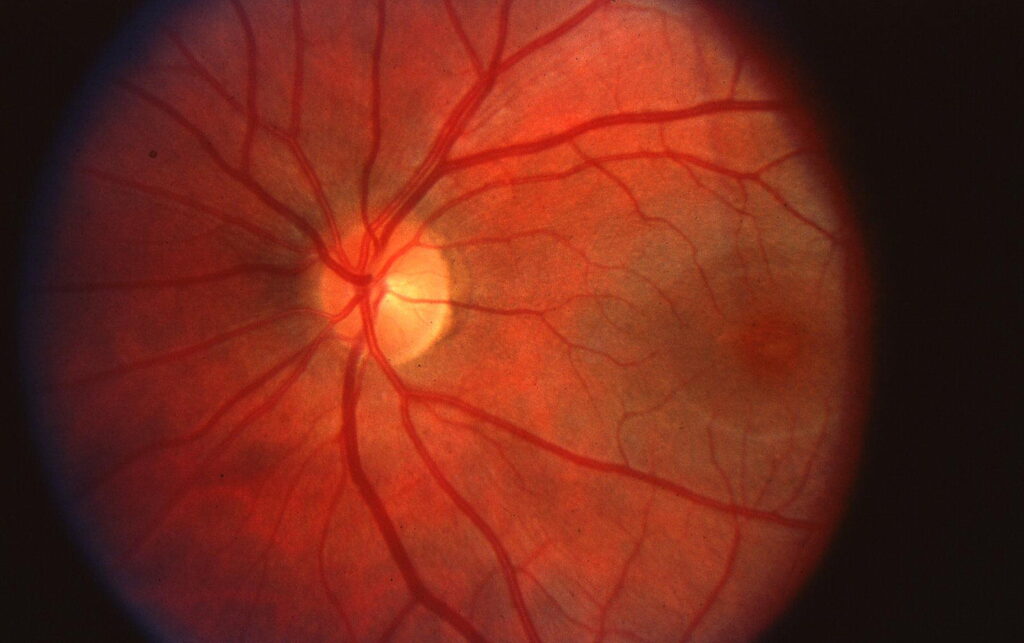WHAT IS PSEUDOTUMOR CEREBRI?
Pseudotumor cerebri happens when the pressure inside your skull (intracranial pressure) rises for no obvious reason. This is also known as idiopathic intracranial hypertension.
Symptoms mimic that of a brain tumor. The increased intracranial pressure could cause inflammation of the optic nerve and lead to vision loss. Medications usually could reduce this pressure and the headache, but in some cases, surgery is required.
Pseudotumor cerebri could happen in children and adults, but it is most frequent in women of childbearing age who are obese.

SYMPTOMS
Pseudotumor cerebri signs and symptoms may include:
- Usually, severe headaches that may originate behind your eyes
- A whooshing sound in your mind that pulses with your heartbeat
- Nausea, vomiting, or dizziness
- Vision loss
- Short episodes of blindness, lasting a few seconds and affecting one or both eyes
- Trouble seeing to the side
- Double vision
- Seeing light flashes
- Neck, shoulder, or back pain
Sometimes, symptoms that have resolved could recur months or years later.

CAUSES
The cause of pseudotumor cerebri is not known. If a cause is determined, the condition is known as secondary intracranial hypertension, rather than idiopathic.
Your brain and spinal cord are surrounded by cerebrospinal fluid, which cushions these important tissues from injury. This fluid is produced in the brain and ultimately is absorbed into the bloodstream at a rate that generally allows the pressure in your brain to remain constant.
The increased intracranial pressure of pseudotumor cerebri may result from a problem in this absorption process.
RISK FACTORS
The following factors have been related to pseudotumor cerebri:
Obesity
Obese women of child-bearing age are at higher risk of developing the disorder.
Medications
Substances connected to secondary intracranial hypertension include:
- Growth hormone
- Tetracycline
- Too much vitamin A
- Health problems
Conditions and diseases that have been connected to secondary intracranial hypertension include:
- Addison’s disease
- Anemia
- Blood-clotting disorders
- Kidney disease
- Lupus
- Polycystic ovary syndrome
- Sleep apnea
- Underactive parathyroid glands

COMPLICATIONS
In some people with pseudotumor cerebri, their vision continues to get worse, leading to blindness.
DIAGNOSIS
To diagnose your condition, your doctor will review your symptoms and medical history, perform a physical exam, and order tests.
Eye exams
If pseudotumor cerebri is suspected, a doctor trained in eye conditions (ophthalmologist) will look for a distinctive type of inflammation damaging the optic nerve in the back of your eye.
You will also undergo a visual field test to see if you have any blind spots in your vision in addition to your so-called normal blind spot in each eye where the optic nerve enters the retina. And you will likely have images taken of your eyes and an imaging test to measure the thickness of the layers of your retina (optical coherence tomography).
Brain imaging
Your doctor will probably order an MRI or CT scan. These tests could rule out other problems that could cause similar symptoms, like brain tumors and blood clots.
Spinal tap (lumbar puncture)
Your doctor may order a lumbar puncture to measure the pressure inside your skull and analyze your spinal fluid. In this test, a specialist inserts a syringe between two vertebrae in your lower back and removes a small amount of cerebrospinal fluid for testing in the lab.

TREATMENT
The goal of pseudotumor cerebri treatment is to improve your symptoms and keep your eyesight from getting worse.
If you are obese, your doctor may recommend a low-sodium weight-loss diet to help improve your symptoms. You may work with a dietitian to help with your weight-loss goals. Some people benefit from weight-loss programs and gastric surgery.
Medications
- Glaucoma drugs – One of the first drugs generally tried is acetazolamide, a glaucoma drug. This medication may lower the production of cerebrospinal fluid and reduce symptoms. Potential side effects include stomach upset, fatigue, tingling of fingers, toes, and mouth, and kidney stones.
- Other diuretics – If acetazolamide alone is not effective, it is sometimes combined with another diuretic, which lowers fluid retention by increasing urine output.
- Migraine medications – These drugs could sometimes ease the severe headaches that usually accompany pseudotumor cerebri.
Surgery
If your vision worsens, surgery to lower the pressure around your optic nerve or to decrease the intracranial pressure may be required.
- Optic nerve sheath fenestration – In this procedure, a surgeon cuts a window into the membrane that surrounds the optic nerve to enable excess cerebrospinal fluid to drain. Vision stabilizes or improves in most instances. Most people who have this procedure done on one eye notice a benefit to both eyes. Although, this surgery is not always successful and could increase vision problems.
- Spinal fluid shunt – In another type of surgery, your doctor inserts a long, slim tube (shunt) into your brain or lower spine to help escape extra cerebrospinal fluid. The tubing is burrowed beneath your skin to your stomach, where the shunt releases the excess fluid. A shunt is usually considered only if other treatments have not relieved your condition. Shunts could clog and usually need other surgeries to keep them working. Complications could include low-pressure headaches and infections.
- Venous sinus stenting – This relatively new procedure is seldom used. It involves placing a stent in one of the bigger veins in the head to increase the blood’s ability to flow. More study is required to determine the benefits and risks of this procedure.
Once you have had pseudotumor cerebri, you will need to have your vision checked regularly to monitor changes.
If you or anyone you know is suffering from pseudotumor cerebri, our expert providers at Specialty Care Clinics will take care of your health and help you recover.
Call 469-545-9983 to book a telehealth appointment for an at-home check-up.
